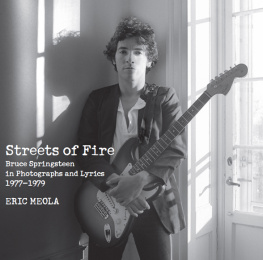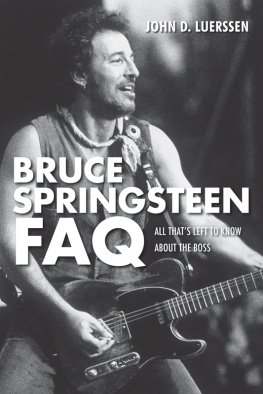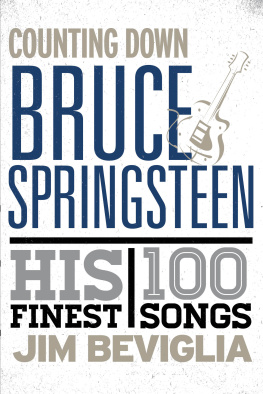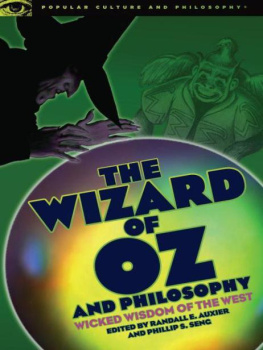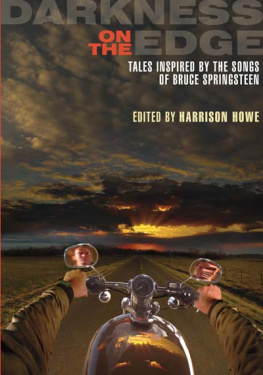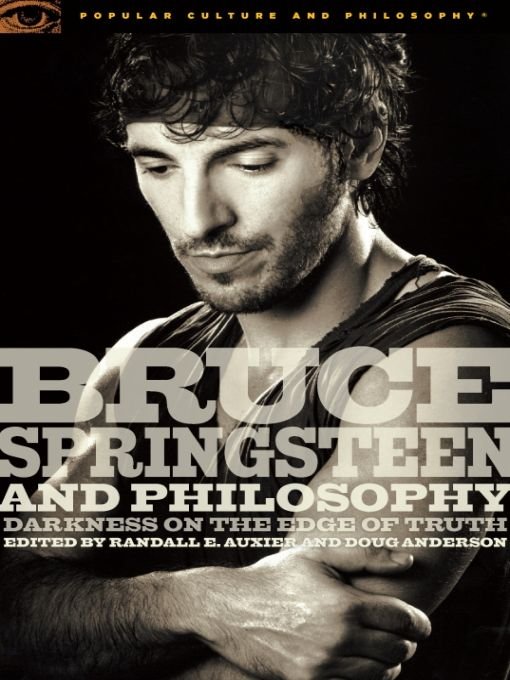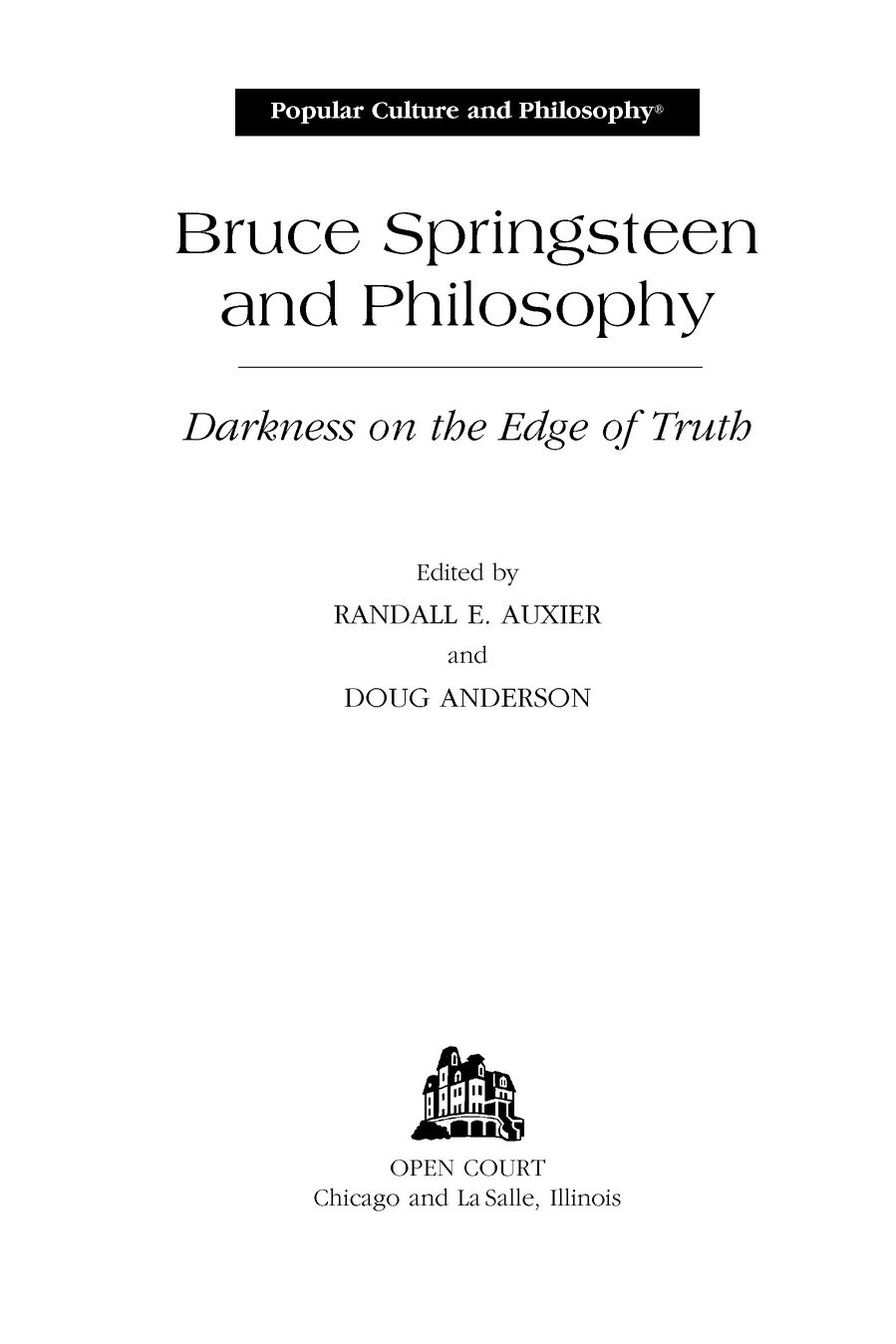Table of Contents
Popular Culture and Philosophy Series Editor: George A. Reisch
VOLUME 1
Seinfeld and Philosophy: A Book about Everything and Nothing (2000)
VOLUME 2
The Simpsons and Philosophy: The Doh! of Homer (2001)
VOLUME 3
The Matrix and Philosophy: Welcome to the Desert of the Real (2002)
VOLUME 4
Buffy the Vampire Slayer and Philosophy: Fear and Trembling in Sunnydale (2003)
VOLUME 5
The Lord of the Rings and Philosophy: One Book to Rule Them All (2003)
VOLUME 6
Baseball and Philosophy: Thinking Outside the Batters Box (2004)
VOLUME 7
The Sopranos and Philosophy: I Kill Therefore I Am (2004)
VOLUME 8
Woody Allen and Philosophy: You Mean My Whole Fallacy Is Wrong? (2004)
VOLUME 9
Harry Potter and Philosophy: If Aristotle Ran Hogwarts (2004)
VOLUME 10
Mel Gibsons Passion and Philosophy: The Cross, the Questions, the Controversy (2004)
VOLUME 11
More Matrix and Philosophy: Revolutions and Reloaded Decoded (2005)
VOLUME 12
Star Wars and Philosophy: More Powerful than You Can Possibly Imagine (2005)
VOLUME 13
Superheroes and Philosophy: Truth, Justice, and the Socratic Way (2005)
VOLUME 14
The Atkins Diet and Philosophy: Chewing the Fat with Kant and Nietzsche (2005)
VOLUME 15
The Chronicles of Narnia and Philosophy: The Lion, the Witch, and the Worldview (2005)
VOLUME 16 Hip Hop and Philosophy: Rhyme 2 Reason (2005)
VOLUME 17
Bob Dylan and Philosophy: Its Alright Ma (Im Only Thinking) (2006)
VOLUME 18
Harley-Davidson and Philosophy:
Full-Throttle Aristotle (2006) Edited by Bernard E. Rollin, Carolyn M. Gray, Kerri Mommer, and Cynthia Pineo
VOLUME 19
Monty Python and Philosophy: Nudge Nudge, Think Think! (2006) Edited by Gary L. Hardcastle and George A Reisch
VOLUME 20
Poker and Philosophy: Pocket Rockets and Philosopher Kings (2006) Edited by Eric Bronson
VOLUME 21
U2 and Philosophy: How to Decipher an Atomic Band (2006) Edited by Mark A. Wrathall
VOLUME 22
The Undead and Philosophy: Chicken Soup for the Soulless (2006) Edited by Richard Greene and K. Silem Mohammad
VOLUME 23
James Bond and Philosophy: Questions Are Forever (2006) Edited by James B. South and Jacob M. Held
VOLUME 24
Bullshit and Philosophy: Guaranteed to Get Perfect Results Every Time (2006) Edited by Gary L. Hardcastle and George A. Reisch
VOLUME 25
The Beatles and Philosophy: Nothing You Can Think that Cant Be Thunk (2006) Edited by Michael Baur and Steven Baur
VOLUME 26
South Park and Philosophy: Bigger, Longer, and More Penetrating (2007) Edited by Richard Hanley
VOLUME 27
Hitchcock and Philosophy: Dial M for Metaphysics (2007) Edited by David Baggett and William A. Drumin
VOLUME 28
The Grateful Dead and Philosophy: Getting High Minded about Love and Haight (2007) Edited by Steven Gimbel
VOLUME 29
Quentin Tarantino and Philosophy: How to Philosophize with a Pair of Pliers and a Blowtorch (2007) Edited by Richard Greene and K. Silem Mohammad
VOLUME 30
Pink Floyd and Philosophy: Careful with that Axiom, Eugene! (2007) Edited by George A. Reisch
VOLUME 31
Johnny Cash and Philosophy: The Burning Ring of Truth (2008) Edited by John Huss and David Werther
VOLUME 32
Bruce Springsteen and Philosophy: Darkness on the Edge of Truth (2008) Edited by Randall E. Auxier and Doug Anderson
VOLUME 35
Star Trek and Philosophy: The Wrath of Kant (2008) Edited by Jason T. Eberl and Kevin S. Decker
IN PREPARATION:
Battlestar Galactica and Philosophy (2008) Edited by Josef Steiff and Tristan D. Tamplin
The Legend of Zelda and Philosophy (2008) Edited by Luke Cuddy
iPod and Philosophy (2008) Edited by Dylan E. Wittkower
The Wizard of Oz and Philosophy (2008) Edited by Randall E. Auxier and Phil Seng
To all the folks in all our
garage bands over the years
I Got this Guitar and I Learned How to Make It Talk
RANDALL E. AUXIER AND DOUG ANDERSON
Hardly anyone, no matter how well trained in philosophical dialectic, could argue with Bruce Springsteens claim in this lyric from Thunder Road. His guitar talks indeed. But what does it say? Lets begin with something Bruce once said with his voice and see whether we can learn to understand the language of the guitar. When Bob Dylan was inducted into the Rock n Roll Hall of Fame, on January 20th, 1988, Bruce Springsteen was called on to speak at the ceremony. On that occasion he said:
When I was a kid, Bobs voice somehow thrilled me and scared me, it made me feel kind of irresponsibly innocent... Dylan was a revolutionary. Bob freed the mind the way Elvis freed the body. He showed us that just because the music was innately physical did not mean that it was anti-intellectual.
This is a highly suggestive thought, and quite complex. Bruce Springsteen is wicked smart. And he packs a lot into a few words, which is, after all, the songwriters craftto suggest in three verses and a chorus as much as a novel says. Here, the first sentence depicts Bruces embodied response to a soundthrilled and scared. And then the jarring juxtaposition of this response to a surprising generalized feeling that results: irresponsible innocence. Being thrilled and scared at the same time is powerfuland we all know what this is like; its like making love for the first time. And that is also how we might understand irresponsible innocence, which is a phrase that fairly captures much of Springsteens own early music.
But quickly Bruce moves on. Elvis freed the body. And that is certainly true, even if it might be more precise to say that Elvis communicated a sense of jubilant embodiment to white urban and suburban youth that already existed in African American culture. But to free the body, one needs to assume that it was somehow imprisoned or trapped, or stuck. White America through the 1950s still lived zombie-like under the lingering and deadening influences of Calvinism, Victorianism, and later fundamentalism: no music, no dance, no touch, no kiss, no sex. Everyone feared her own scarlet letter, a world of form without substance. Were we Americans all stiff in 1954? Its good to remember that the bodies of Americans had been sacrificed in great numbers less than a decade before, and that the hoped-for freedom for which we sacrificed a million sons and daughters of our own (and still more of the enemys sons and daughters), was plunged into immediate danger by the Cold War, a war that was not yet over when Springsteen spoke these words. The past was awash in blood, and the future was a black hole. The bodies of our children were trained to duck and cover in the event of a nuclear attack. When one tries to imagine the bodily prison that Elvis sprung us from, it is tempting to imagine children cowering beneath their school desks, hoping they get a chance to grow up, and that there will still be a world in which to do so. Yes, Elvisinnocentlyfreed their bodies from that. Bruce is right.




